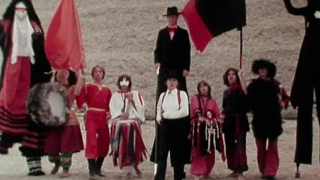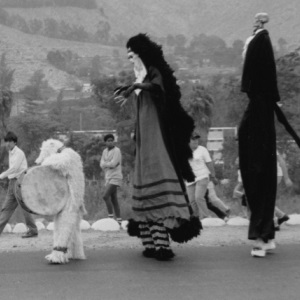Carnival is popular street festival that usually combines music, masking or costume, dance, food, eroticism and performances such as parades, street theatre and puppetry. Theorist Mikhail Bakhtin influentially argued that carnival is socially liberating because it licenses the crossing of boundaries, especially between social and racial classes. As others have noted, carnival’s transgressive potential can also question the conventional separation of audiences and performers, as well as boundaries of gender, race, ethnicity and sexuality. It can also challenge dominant social rules regarding temporality and can challenge hegemonic assumptions of value, most importantly by celebrating marginalised communities. However, carnival also has socially repressive potential because its licence to exist is granted only temporarily, in a circumscribed space and by the state, creating an illusion of democratically dispersed cultural power while actually reinforcing hegemony. In contemporary contexts as far dispersed as Rio de Janeiro, London’s Notting Hill and Toronto, carnivals often function to articulate minority communities’ national, ethnic and ‘racial’ cultural identities, temporarily but powerfully contesting racism and oppression. Carnival nevertheless remains vulnerable to appropriation. While governments may promote themselves as benignly multicultural by supporting carnival, they may simultaneously exploit it by presenting it as intercultural exotica and using it to attract tourists and to stimulate regional regeneration. Carnival is also vulnerable to capitalist exploitation. In the 1990s, the Notting Hill Carnival’s sponsorship by a soft-drink company meant that it temporarily changed its name to the Lilt Notting Hill Carnival. This association of product and event had the possible effect of detracting from the carnival’s oppositional status, linking the event with commercial rather than cultural priorities. From the RCTP
Image: Odin Teatret Archives. Ayacucho, Peru, 1988. Photo © Tony D’Urso





